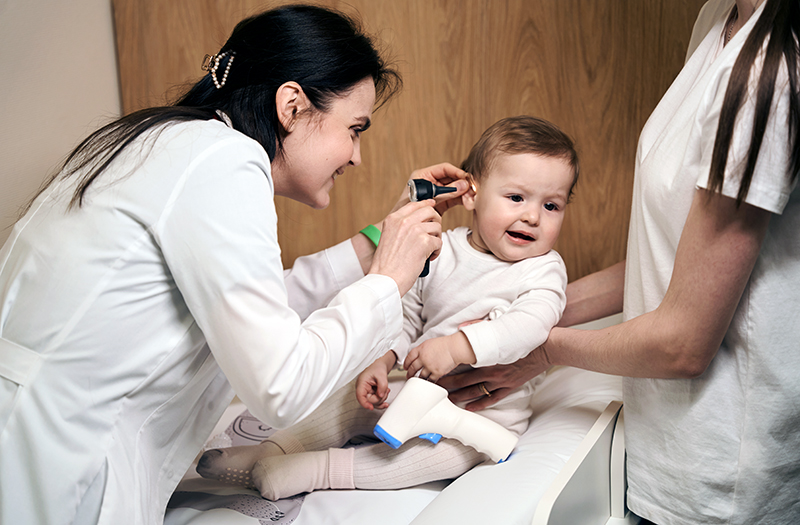How Often Should Your Newborn Visit the Doctor
How Often Should Your Newborn Visit the Doctor
Blog Article

Ensuring that your newborn receives regular medical care is essential for their health and well-being. Newborns require frequent visits to the doctor during their first year of life to monitor their growth, development, and overall health. But how often should your newborn visit the doctor? Let's explore the recommended schedule for newborn doctor visits and why these appointments are crucial for your baby's health.
In the first few weeks after birth, newborns require frequent visits to the doctor to monitor their growth and ensure that they are thriving. Most healthcare providers recommend that newborns have their first doctor visit within the first week of life, typically within the first two to three days after birth. This initial visit allows healthcare providers to assess your baby's health and address any concerns or issues that may arise shortly after birth.
After the initial visit, newborns typically have additional doctor visits at two weeks, one month, two months, four months, six months, nine months, and one year of age. These visits are spaced out to coincide with important developmental milestones and vaccination schedules. During these appointments, healthcare providers will conduct thorough physical examinations, measure your baby's growth, and assess their developmental progress.
One of the primary purposes of newborn doctor visits is to monitor your baby's growth and ensure that they are gaining weight and growing at a healthy rate. Healthcare providers will measure your baby's weight, length, and head circumference at each visit and track these measurements over time. Any deviations from the expected growth trajectory may indicate underlying health concerns that require further evaluation and intervention.
In addition to monitoring growth, newborn doctor visits also focus on assessing developmental milestones and ensuring that your baby is meeting important milestones at each stage of development. These milestones include motor skills, social interactions, language development, and cognitive abilities. By observing your baby's behaviors and interactions, healthcare providers can identify any delays or developmental issues early on and provide appropriate support and intervention.
Another essential aspect of newborn doctor visits is vaccination. Vaccines are crucial for protecting your baby against a variety of infectious diseases, some of which can be life-threatening. During newborn doctor visits, healthcare providers will administer vaccines according to the recommended schedule to ensure that your baby receives timely protection against common childhood illnesses. Vaccines are typically given at specific ages to provide optimal protection against diseases such as hepatitis B, rotavirus, diphtheria, tetanus, pertussis, Haemophilus influenzae type b (Hib), pneumococcal disease, and polio.
In conclusion, newborn doctor visits are an essential aspect of early childhood healthcare, providing parents with valuable information and guidance to ensure the optimal health and development of their babies. By following the recommended schedule for newborn doctor visits and staying engaged in your baby's healthcare from the very beginning, you can help set the stage for a lifetime of health and well-being. Remember, your baby's doctor is not just a healthcare provider but also a partner in your journey as a parent, offering guidance, reassurance, and expertise every step of the way.
General FAQs:
Why is it important for newborns to visit the doctor regularly? Regular visits to the doctor are crucial for newborns to monitor their growth, development, and overall health. Newborns undergo rapid changes in the first year of life, and frequent visits to the doctor allow healthcare providers to assess their progress, address any concerns, and provide necessary interventions or support. These appointments also provide an opportunity for parents to ask questions, receive guidance on infant care, and stay informed about their baby's health.
How often should newborns visit the doctor in their first year? Newborns typically visit the doctor frequently during their first year of life. The recommended schedule for newborn doctor visits includes appointments at two weeks, one month, two months, four months, six months, nine months, and one year of age. These appointments are spaced out to coincide with important developmental milestones and vaccination schedules, allowing healthcare providers to monitor your baby's growth and development closely.
What happens during newborn doctor visits? During newborn doctor visits, healthcare providers conduct thorough physical examinations, measure your baby's growth, and assess their developmental progress. They will check your baby's weight, length, and head circumference, as well as observe their motor skills, social interactions, language development, and cognitive abilities. Vaccines are also administered according to the recommended schedule to protect your baby against infectious diseases.
What should parents expect during these appointments? Parents can expect healthcare providers to discuss their baby's health and development, answer any questions or concerns they may have, and provide guidance on infant care and feeding. It's important for parents to be actively involved in their baby's healthcare and to communicate openly with their healthcare provider about any issues or changes they notice in their baby's behavior or health.
What if I have concerns between scheduled doctor visits? If you have concerns about your baby's health or development between scheduled doctor visits, don't hesitate to contact your healthcare provider. Many healthcare providers offer telehealth appointments or have on-call services available to address urgent concerns or questions. It's important to trust your instincts as a parent and seek guidance from your healthcare provider whenever you have concerns about your baby's well-being. Regular communication with your healthcare provider is key to ensuring that your baby receives the best possible care.